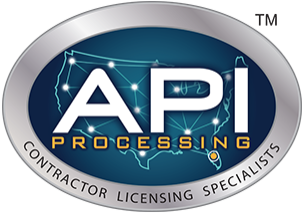Arkansas Alarm, Fire, Electrical, and General Contracting License
Are you interested in obtaining a contractor’s license in the State of Arkansas? Do you need help with Arkansas reciprocity procedures? Does your business need a qualified listed agent? Do you need help forming a corporation, LLC, or partnership entity? Does your Arkansas business need a surety bond?
API offers contractor licensing application assistance in Burglar Alarm, Electrical, and Construction license classifications. With over 25 years in the Electrical and Construction Licensing Industry, API has the knowledge, resources, and expertise to help get you licensed.
API Processing can assist you with the following licensing classifications:
- General Contractor
- Electrical
- Alarm
- Fire
- Limited Energy
- All Construction related licenses
Arkansas State Licensing Board Resources
Contractors Licensing Board
State Highway and Transportation
Fire Protection Licensing Board
Arkansas Board of Private Investigators & Private Security Agencies
Problems to Avoid When Filing Your Arkansas Contractor License on Your Own
When filing your Arkansas contractor license on your own, it’s essential to be aware of common problems that can lead to delays or even denial of your application. These include incomplete or inaccurate documentation, failure to meet the strict educational and experience requirements, and misunderstanding or overlooking state and local regulations. Additionally, inadequate preparation for the required exams and underestimating the time needed to navigate the bureaucratic process can cause significant setbacks. To avoid these issues, ensure your application is thorough, accurate, and aligned with all Arkansas Contractors Licensing Board guidelines.
Here are the most common problems:
Complex Application Requirements.
Obtaining a contractor license in Arkansas involves a detailed process requiring specific documentation, such as proof of qualifications and financial stability. It's essential to ensure every part of the application is complete and accurate to avoid unnecessary delays.
Stringent Educational and Experience Requirements.
Each type of contractor license in Arkansas comes with its own set of prerequisites related to education and professional experience. Meeting these criteria can be challenging, as applicants must demonstrate their qualifications and meet the exact standards required.
Navigating State and Local Regulations.
Understanding and complying with both state and local regulations in Arkansas can be confusing. Regulations vary between jurisdictions, making compliance especially challenging for contractors working across multiple areas.
Examination Preparation.
Most contractor licenses in Arkansas require passing one or more examinations. These exams are rigorous and assess a broad range of knowledge and practical skills, so thorough preparation is essential.
Delays and Bureaucratic Hurdles.
The licensing process in Arkansas can be slow, with unexpected delays often arising due to incomplete applications or errors. Navigating the bureaucratic side of things can pose a significant challenge for many contractors.
For a smoother experience, consider partnering with API Processing, where we streamline the Arkansas contractor licensing process to ensure your application is handled efficiently and without error.
Arkansas Contractor Licensing Terms You Need to Know
Understanding key terminology is essential when navigating the Arkansas contractor licensing process. Here are 10 important terms every contractor should be familiar with:
General Contractor
A contractor licensed to oversee and manage construction projects in Arkansas. They are responsible for coordinating various trades and ensuring compliance with state building codes and safety regulations.
Subcontractor
A contractor hired by a general contractor to perform specialized tasks within a larger project, such as electrical work, plumbing, or roofing. Subcontractors in Arkansas must meet licensing requirements specific to their trade.
Arkansas Contractors Licensing Board (ACLB)
The regulatory body that oversees contractor licensing in Arkansas. The ACLB ensures contractors meet the state's standards for education, experience, financial stability, and other licensing requirements.
Prime Contractor
A contractor who enters into a primary contract with the project owner and is responsible for the overall completion of the project. In Arkansas, a prime contractor must be licensed to handle projects above a certain size or scope.
Surety Bond
A financial guarantee required by Arkansas for certain types of contractors. It ensures that the contractor will meet the terms of the contract, protecting clients in the event of non-compliance or failure to complete the project.
Performance Bond
A type of surety bond that guarantees the contractor will complete the project as agreed in the contract. If the contractor fails, the bond covers the costs required to finish the work.
Reciprocity Agreement
An agreement between Arkansas and other states allowing licensed contractors from those states to obtain an Arkansas contractor license without having to retake certain exams. This is beneficial for contractors working across state lines.
Financial Statement
Arkansas requires contractors to submit financial statements proving their financial stability and ability to handle construction projects. These are a critical part of the licensing application process.
Bid Limit
The maximum dollar amount for which a contractor is licensed to bid on a project in Arkansas. This limit is based on the contractor’s financial statement and must be strictly followed for legal compliance.
Continuing Education
In Arkansas, contractors may be required to complete continuing education courses to maintain their licenses. These programs ensure contractors remain current on industry standards, regulations, and safety practices.
Knowing these terms will help you navigate the Arkansas licensing process with confidence. At API Processing, we guide contractors through every step, ensuring all licensing requirements are met efficiently and accurately.
